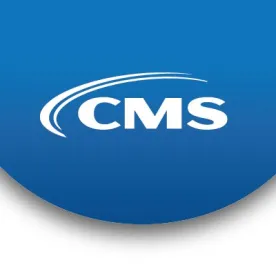On September 15, 2021, CMS published a proposed rule that would repeal a final rule that created an expedited pathway for Medicare coverage of breakthrough devices and established formal criteria for applying the “reasonable and necessary” standard for coverage in Section 1862(a)(1)(A) of the Social Security Act, which has been the basic standard for coverage since the inception of the Medicare program.[1] CMS has set a short period for comments, and interested parties must submit comments by October 15, 2021.
The new proposed rule reflects a significant policy change. Where the initial rule focused on expanding access to new innovations, the current approach focuses more on Medicare program goals and outcomes data.
The final rule was published on January 14, 2021, a few days before the end of the Trump Administration. Under that rule, the Medicare program was authorized to approve Medicare coverage for all medical devices designated by the Food and Drug Administration as breakthrough devices for up to four years beginning as early as the date of the FDA’s market authorization. It also established standards for making reasonable and necessary determinations under Section 1862(a)(1)(A) of the Social Security Act, and included a provision that could allow CMS to approve Medicare coverage based on policies published by commercial health plans.[2] When the Biden Administration took office on January 20, CMS, along with all federal agencies, was instructed to review all final rules that had not yet taken effect.[3] CMS did so, and on March 17, 2021 CMS delayed the effective date of the rule and opened a new comment period. The effective date was later delayed to December 15, 2021.[4]
CMS Wants a Hands-on Approach to Coverage of Innovations
The new proposed rule highlights several program priorities that CMS now believes were not adequately addressed in the January 2021 final rule, and that should be addressed by commenters. The agency’s concerns focus mostly on concerns tailored to the Medicare program and patient outcomes, and are concerns that commenters should take into account:
-
CMS noted that determinations by the FDA are not binding on Medicare coverage determinations, as each agency follows different laws and criteria for making decisions.[5]
-
CMS was concerned that the January 2021 rule would require Medicare coverage without adequate evidence that the breakthrough device would actually benefit Medicare beneficiaries. It noted that under the FDA’s criteria, a manufacturer is not required to present data regarding the use of that device in the Medicare population in order to obtain approval or clearance, and that the relevant data might never be collected. CMS was not convinced that voluntary evidence development by manufacturers would be sufficient to enable it to make final coverage determinations.
-
CMS also noted a breakthrough device may only be beneficial for a specific subset of the Medicare population, or when used by clinicians with specific training. As a result, without sufficient evidence to clarify when those breakthrough devices will result in good outcomes for Medicare beneficiaries, CMS would lack the evidence that it needs to determine if the device is reasonable and necessary. Without such evidence, it is possible that Medicare would be covering and paying for devices that may have little or no Medicare relevant clinical evidence to assist physicians and patients in making potentially life-saving treatment decisions.
-
CMS had a related concern that if Medicare coverage for a breakthrough device was guaranteed based on the FDA’s designation and marketing authorization, providers and suppliers would have an incentive to use or prescribe that device instead of alternatives that may be more beneficial to their patients. This could result in the breakthrough device becoming a standard of care, crowding out alternative treatments without regard to outcomes, and give the first-to-market product an unfair economic advantage that could suppress competition and innovation.
-
CMS reiterated that it was not barring Medicare coverage for breakthrough devices, and that its existing pathways for coverage would still apply.
CMS Backtracks on Defining the “Reasonable and Necessary” Standard for Coverage
One goal of the January 14 final rule was to establish binding criteria for determining if an item or service is reasonable and necessary. After reviewing the rule and comments further, CMS came to the conclusion that including commercial insurance coverage policies as a factor in determining Medicare coverage would be difficult to implement because the standard was too vague. As a result, CMS has proposed to withdraw this part of the final rule and has not proposed replacing the rule with new criteria. Any interested party is encouraged to submit comments on alternative ways to define the reasonable and necessary standard.
FOONOTES
[1] 86 Fed. Reg. 51326 (Sept. 15, 2021)
[2] 86 Fed. Reg. 2987 (Jan. 14, 2021); CMS Fact Sheet, Medicare Coverage of Innovative Technology (CMS-3372-F),
[3] Regulatory Freeze Pending Review (also known as Klain Memorandum), 86 Fed. Reg. 7424 (January 28, 2021).
[4] 86 Fed. Reg. at 52317.
[5] See ,e.g., Goodman v. Sullivan, 891 F.2d 449 (2d Cir. 1989).




 />i
/>i

